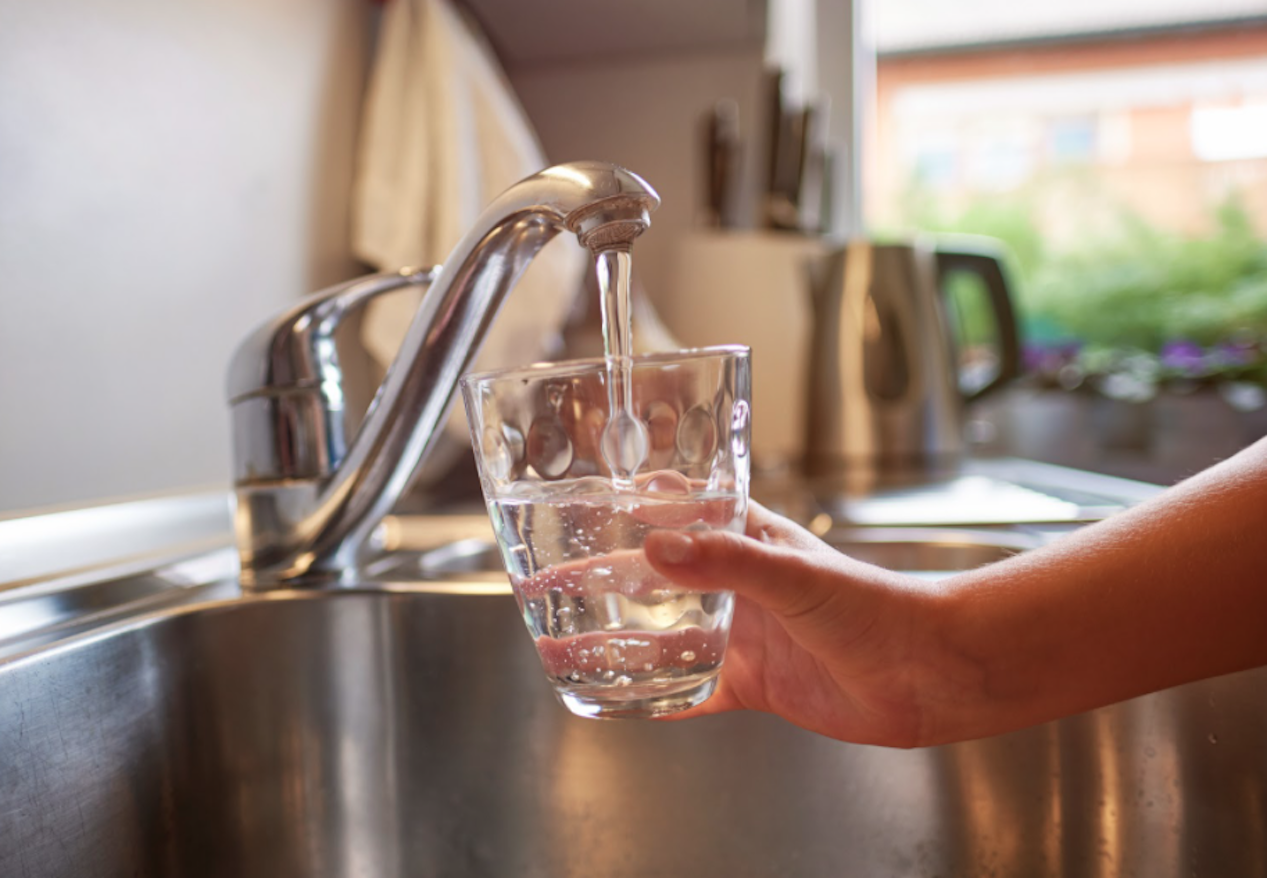When water flows into your home from the city source, it has minerals that harden water such as calcium and magnesium. As hard water runs through the pipes, it can cause harm to your pipes, home appliances, and even your health.
A home water softener system can remove water hardening minerals to provide your home with soft water. Soft water offers homeowners several benefits such as eliminating pipe damaging buildup, limescale and mineral deposits in your appliances. Additionally, it comes with health and wellness benefits, such as silkier hair and softer skin. A professionally completed water softener installation can help you save money and keep your family healthy.
What is a Water Softener?
Contents
A water softener is a type of filtration system that removes hard water causing minerals. The filtration system attracts dissolved minerals such as calcium and magnesium, thereby releasing soft water to the home.
A chemical process known as ion-exchange is used to remove hard water causing minerals from water. Water softener systems contain resins that capture these minerals as the water flows through the system. The water entering your pipes and appliances is now considered soft water that is free of mineral deposit causing chemicals.
Homes with hard water issues will show signs of crusty residue on faucets, soap scum or limescale on tiles, and marks on dishes once they’re dry. A water softener system is highly recommended for homeowners who live in areas with high concentrations of hard water.
While hugely beneficial for the longevity of your home’s plumbing and appliances, soft water has health and wellness benefits for its users. Also, there are multiple areas where you can save money.
Significant Cost Savings
A home using a water softener system can take advantage of cost savings that arise from reduced water heating costs, minimal appliance repair and replacements, and minimal plumbing repairs. Furthermore, there are long-term cost savings from reduced consumption of soap and laundry detergents.
Reduced Water Heating Costs: When the minerals in hard water come in contact with the heating element in a water heater, it can lead to poor heating performance. The hot water tank needs to consume more energy to heat water. On the other hand, soft water can ensure your hot water tank works as efficiently as possible, keeping heating costs low.
Minimal Appliance Repair and Replacements: Home appliances that use water, such as your washing machine, dishwasher, coffee maker, and fridge can all be a victim to scale build-up caused by hard water. In the long term, this can lead to expensive repairs or replacement. Soft water in the home can prolong the life of your home appliances and save you money.
Increased Longevity of Plumbing
A home’s plumbing will go through a considerable amount of wear-and-tear from hard water, as it can create scale build-up and leave hard mineral deposits in the pipes. It can cause clogs in your pipes, as well as reduced water pressure.
In homes without a water softener, there’s a high probability of hard water damage in the plumbing. As the damage builds up, it will start to minimize the diameter of the pipe – further narrowing the space available for water to pass. This will decrease the water pressure in the home and is visible when you turn on the faucet.
With a water softener system; homeowners can ensure they are protecting their home’s plumbing and faucets.
Softer Skin and Silkier Hair
There are health benefits to having a water softener system in the home, such as reducing dryness in the skin and hair, while making hair silkier. The high concentration of calcium and magnesium in hard water leaves our skin feeling dry after showers.
Hard water can impact our skin’s pH balance, potentially reducing the skin’s protection against infections. Those who suffer from skin conditions such as eczema are more likely to feel the impact of hard water.
Soft water is attributable to softer skin, silkier hair, and minimal teeth coloration. In emphasizing our health and wellness, it’s beneficial for homes to have a water softener system – especially homes that are in an area with a high concentration of hard water.
Softer and Vibrant Clothes
Soft water can help keep your clothes soft post-laundry and keep more of their original shine and color.
Your clothes take a toll when they’re washed with hard water. Hard minerals do not effectively penetrate through soap and laundry detergent to create a rich lather. This can lead to higher soap consumption, with reduced cleaning potential. Soft water can solve these problems, as they penetrate efficiently through soap to create a rich lather.
Additionally, hard water leaves behind mineral deposits in the fabric of your clothes. As your clothes are put through multiple cleaning cycles, these deposits can cause the vibrancy and brightness of fabric to fade. Hard water can also cause your laundry to be stiff after washing.
Less Frequent Cleaning
A home’s water softener can help eliminate hard water stains on silverware, fixtures, sinks, and glassware. Among these, you’ll have no soap scum or limescale build-up on tiles. In the bathroom, you’ll notice fewer stains in the tub, and no hard water spots on the showerhead.
Glassware washed with hard water will have a cloudy appearance once they dry, similar to glassdoors in the shower. With soft water, homeowners can spend less time cleaning and reduce their soap consumption.
Conclusion
According to the City of Toronto, the average three-person household used on average 630L of water per day in 2019. Considering our high consumption of water and the benefits outlined above – it’s largely beneficial to have a water softener in the home. Homeowners can take advantage of cost and time savings while ensuring they and their homes are healthy.


